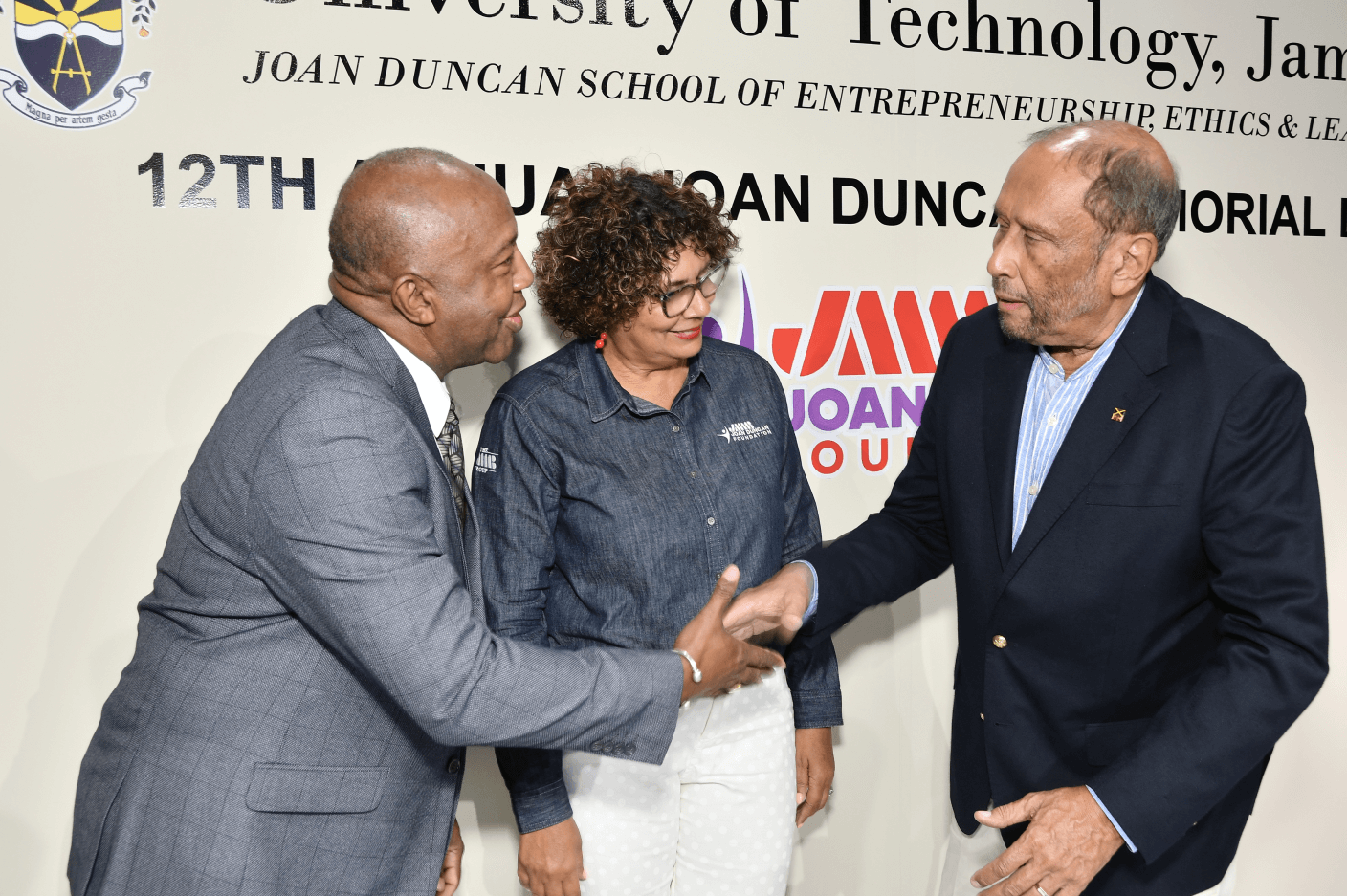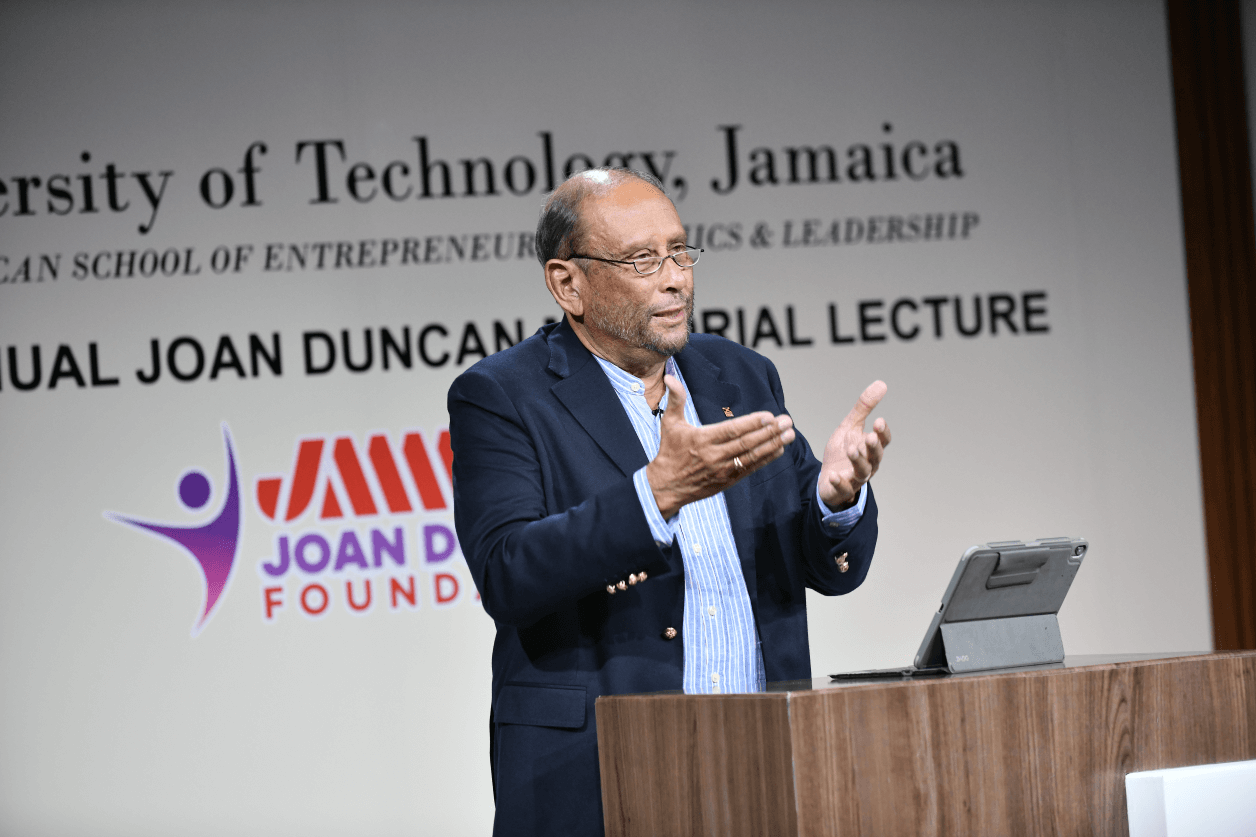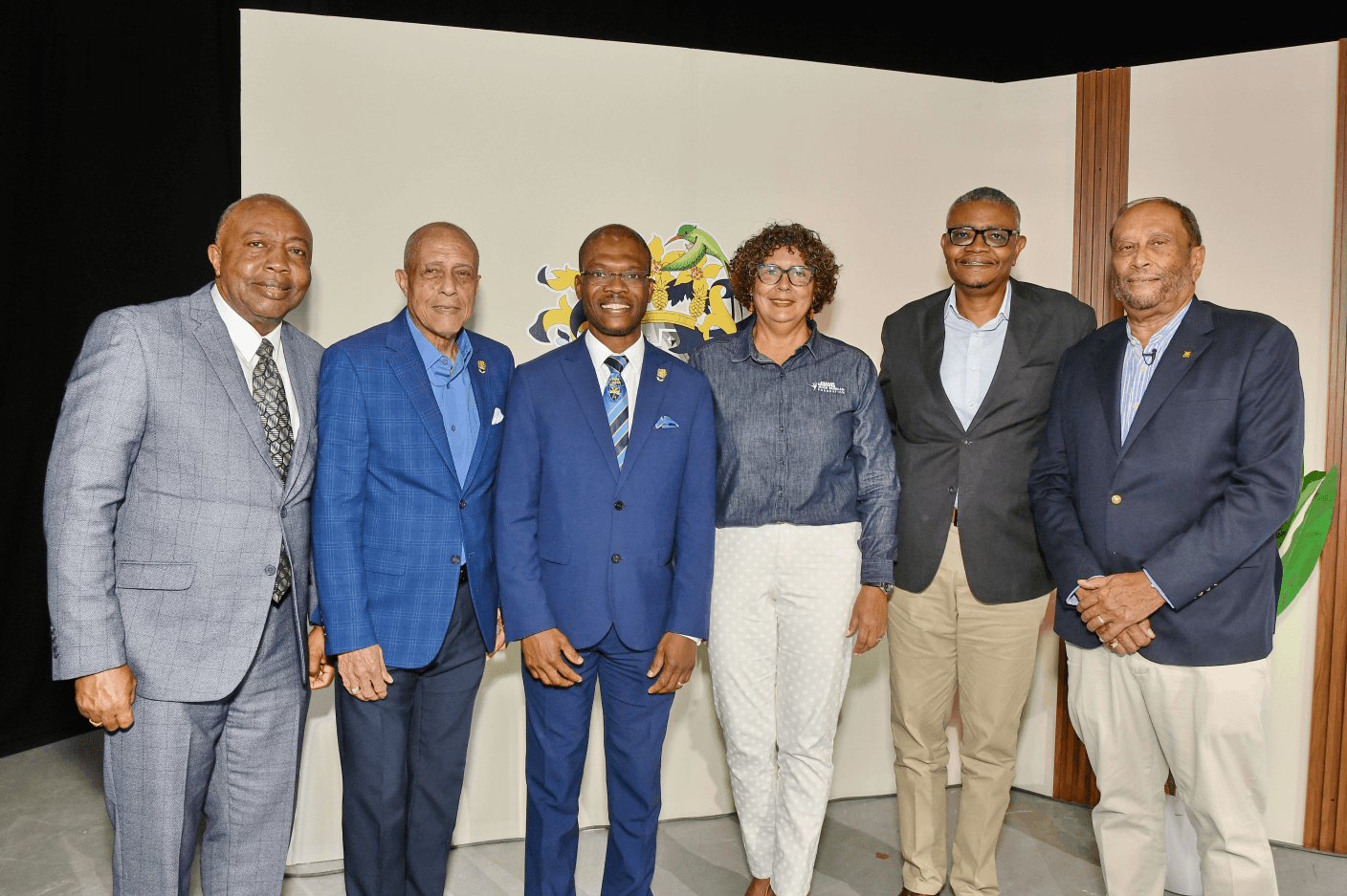Joan Duncan Memorial Lecture Urges Strengthening of Community Engagement to Restore Ethics in Society & Address Social Complexities

Renowned attorney-at-law Howard Mitchell is calling for a communal approach to address rising social complexities that threaten the fundamental values of trust, accountability and social cohesion in modern societies. He stated, “It is essential for community members to claim their space and raise their voices in support of ethical beliefs and values”, and to “not sit back and wait for the state to deliver a perfect and comfortable environment.”
Mitchell was delivering the 12th Annual Joan Duncan Memorial Lecture on Sunday, May 18, under the theme “At What Cost? Ethics, Development, and the Price of Progress.” The lecture was broadcast live on Television Jamaica (TVJ).
The annual lecture is a collaborative initiative between the JMMB Joan Duncan Foundation and the University of Technology, Jamaica through its Joan Duncan School of Entrepreneurship Ethics and Leadership (JDSEEL). It honours the life and legacy of the late corporate leader and co-founder of the JMMB Group, Joan Duncan, whose mission and vision was to improve lives through financial inclusion and access.
Mitchell, who has led an expansive 35-year career in commercial law and public service, engaged the audience in a thought-provoking discourse on the role of ethics in creating and maintaining functional societies.

Laying the foundation for his presentation, Mitchell referenced Professor Raghuram Rajan's work describing the State, the Market (or Commerce) and the Community (Civil Society) as the three vital pillars of society. He emphasized that the absence or imbalance of any of these pillars can lead to societal dysfunction, potentially resulting in a failed state if left unaddressed. “Successful societies derive from cooperation within a framework of positive shared beliefs and values that must originate from the people in that society, from the community of humans, not imposed top-down by the state or by commercial interests. Those beliefs and values must be lived and acted upon by commerce and by the state and must be supported and reinforced by laws and regulations passed by the state,” asserted Mitchell.
He argued that many of the unethical behaviors observed today stem from the denial of access faced by the masses and lack of consensus which then hinders prosperity, ambition, and progress. “In Jamaica, our behavioral standards come from the mass of the people. It is they who, in the struggle to survive, develop the modalities of that survival, oftentimes to the concern and anger of the rest of society. I submit that perhaps they have no choice, but to develop these modalities, these sometimes-negative standards, because that's the only way that they can get access.”
Call to Action – Strong System of Shared Values
While acknowledging the contribution of former Prime Ministers Norman Manley, Edward Seaga and PJ Patterson for their efforts to create equal access and opportunities for citizens, Mitchell cautioned that Jamaica’s current trajectory risks descending into chaos and moral decay without a strong system of shared values.
He therefore pointed to the importance of community involvement and collective action of citizens in shaping ethical behaviour and holding key stakeholders of the state and private sector accountable. Michell urged citizens to reject superficial political strategies, and to instead invest in knowledge about local government and its challenges. Failing to demand reform and accountability will lead to the community’s decline.
On the matter of accountability and transparency, Mitchell noted that community members should request attendance at parish council meetings to express their concerns about their local areas, work with the media, and build trust with the police. “We must demand of the state that resources be put in place to restore confident leadership to our communities, to establish and support community councils, to strengthen our early childhood facilities and to give our social services more support to teach parenting skills,” Mitchell stated, while emphasizing the role of other community groups like religious institutions, which he charged should encourage mindfulness, empathy and consideration for others.
Regaining Trust and Morality
The guest speaker proposed a “reset” of the societal operating system to address the erosion of trust in the state. Noting that actions towards true progress and development must break through barriers to access. “For too long, Jamaicans have allowed their beliefs of right and wrong to be subordinated to the expediency of survival. We are in danger of allowing the negative norms and modalities of survival to become our ethical standards, because economic success is posited as our only goal,” he cautioned.

Patricia Sutherland (3rd right), chair of JMMB Joan Duncan Foundation joins in a photo op with members of the University of Technology, Jamaica team, (from left) Prince Graham Haynes, acting head of Joan Duncan School of Entrepreneurship Ethics and Leadership (JDSEEL), Aldrick ‘Allie’ McNab, pro-chancellor and Dr Kevin Brown, president, Dr. David McBean, a director of Radio Jamaica Limited and Howard Mitchell, renowned attorney-at-law and this year’s guest speaker for the Joan Duncan Memorial lecture, which was held recently via live broadcast on TVJ.
In his welcome, Dr. Kevin Brown, President, University of Technology, Jamaica stated that in keeping with the theme of ethics, “UTech, Jamaica (the national STEM university) is committed to preparing the workforce of the future, not only with technical expertise, but with the ethical grounding and entrepreneurial mindset essential for nation building.” Dr. Brown added this year’s conversation “challenges us to redefine how we perceive success, not only in terms of profit, but by the ethical impacts of our actions on society.”
Patricia Duncan Sutherland, Chair of the JMMB Joan Duncan Foundation, in her remarks, posthumously wished her mother a happy birthday while sharing, “she would be ecstatic that we are having this lecture today on ethics, ” as it aligns with the core values of the late Duncan who built JMMB Group on the principles of unconditional love and best interest for all. She further noted that transformation begins with a conversation which reinforces the call for accountability and responsibility. “We know that we need to hold not just our politicians accountable, but the people in our workplace, in the private sector and our individual citizens, so we need to put this on the table and have this conversation” she reiterated.

The JMMB team were in a celebratory mood with branded sweet treats in hand, following the annual Joan Duncan Memorial lecture, which was held on the birthday (May 18) of the late co-founder of JMMB, whose life and legacy the lecture honours. Sharing in the photo are: (L-R) Patricia Sutherland, Ronique Satchell, Nadine Sinclair, Gifford Rankine, Kerry-Ann Stimpson, Celia Ebanks and Gabrielle Hall.
The event concluded with a lively Q&A session, during which Mitchell engaged with students and professionals, providing valuable insights and advice on deepening community engagement and individual and collective responsibility in ethical decision-making and its impact of aspects of society. Marline Stephenson Dalley, veteran journalist and broadcaster moderated the proceedings.
